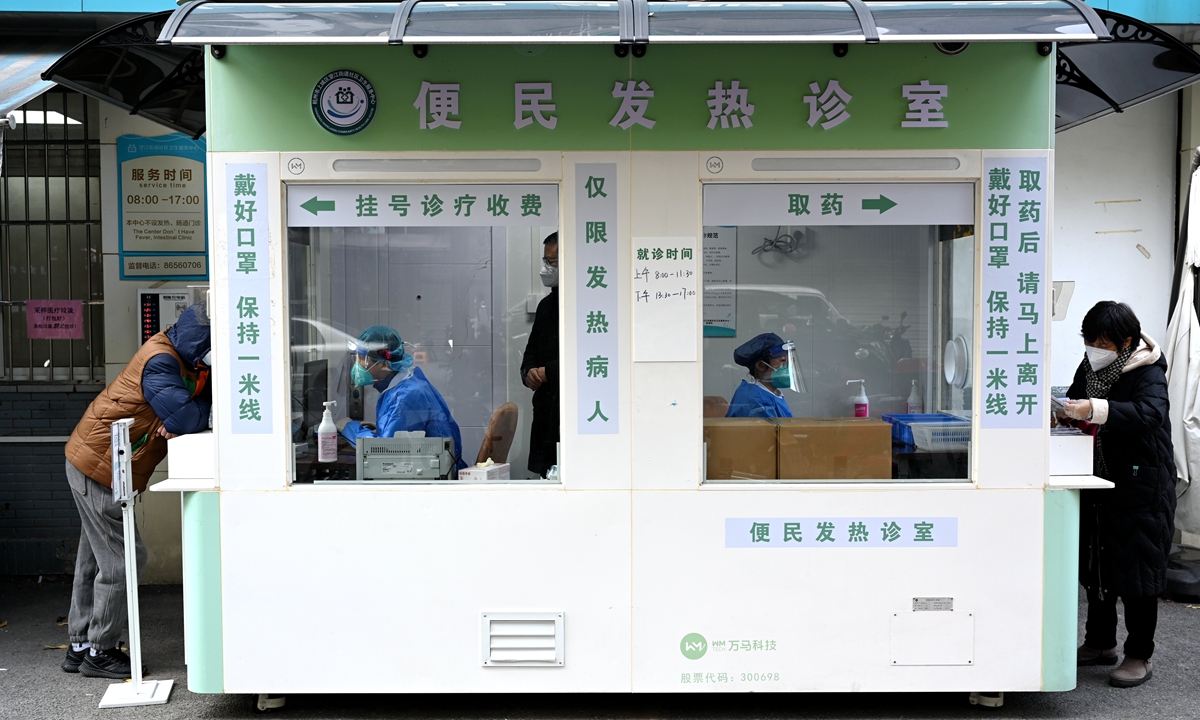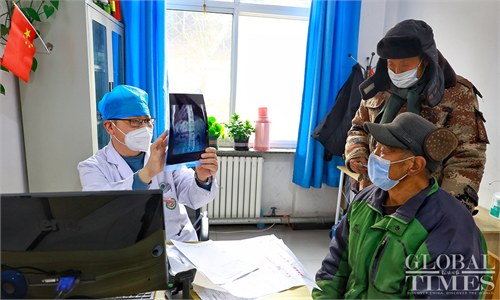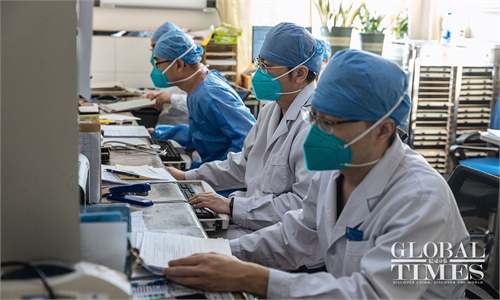
Residents visit a fever clinic transformed from a sampling kiosk of nucleic acid testing in Hangzhou, East China's Zhejiang Province on December 22, 2022. Photo: IC
Some regions including Central China's Henan Province and East China's Zhejiang Province have passed the peak of COVID-19 infections, but Henan is still in the peak period in terms of treating critical cases while Zhejiang has vowed to provide antiviral drugs to ensure key groups including the elderly can be treated promptly, according to the authorities on Monday.
The monitoring data from communities showed that the COVID-19 infection rate in Henan was 89.0 percent, including 89.1 percent in urban areas and 88.9 percent in rural areas as of January 6, and Omicron BA.5.2 was still the main strain in the region, Kan Quancheng, director of the Henan provincial health commission, said at Monday's press briefing.
The number of patients visiting the fever clinics reached a peak on December 19, 2022, and there has been a continuous downward trend since then, Kan said. Henan Province has successfully passed the epidemic peak and operated in an orderly manner, while the number of new daily infections is expected to remain at a low level at the end of this month, according to Kan.
Facing the current shortage of Azvudine tablets, Henan-based Genuine Biotech and its relevant production companies have started 24-hour full production, said the official. Negotiations on medicines to be covered by China's national medical insurance system concluded on Sunday, with Azvudine tablets included, according to China's National Healthcare Security Administration.
The company is expected to produce drugs for nearly 1.5 million people per day in late January, which can basically meet the needs of critical treatment, according to the Henan officials.
Henan's Xinxiang pharmaceutical factory can supply an inventory of active pharmaceutical ingredients of up to 783 kilograms by the end of January, which can meet the needs of five pharmaceutical plants, said the Henan official. It is predicted that by February, the company can produce active pharmaceutical ingredients of up to 1,500 kilograms, which can produce drugs for 42 million people per month, according to the official.
Henan has also made efforts to conduct tiered treatment. A total of 2,556 township health centers and community health service centers have been offering 24-hour services to ensure residents nearby get timely treatment, according to the official.
Although the peak of infections has passed, Henan is still in the peak period in terms of treating critical cases. From December 10, 2022 to January 7, the province has expanded the number of beds from 393,301 to 545,119, raising the number of ICU beds from 13,635 to 21,771 in secondary and higher-level hospitals, according to the authorities.
Henan also allocated 600 million yuan ($88.39 million) in emergency funding for medical institutions to expand the number of beds for severe cases and to purchase urgently needed equipment, according to the official.
In Zhejiang province, the authorities vowed to focus on prevention and treatment of severe cases and to increase medical capabilities, according to local media reports.
"When an infectious disease poses less harm to people's health and leaves a lighter impact on the economy and society, it is a science-based decision to adjust the intensity of prevention and control measures," Liang Wannian, head of the COVID-19 response expert panel under the National Health Commission said in an interview with Xinhua.


